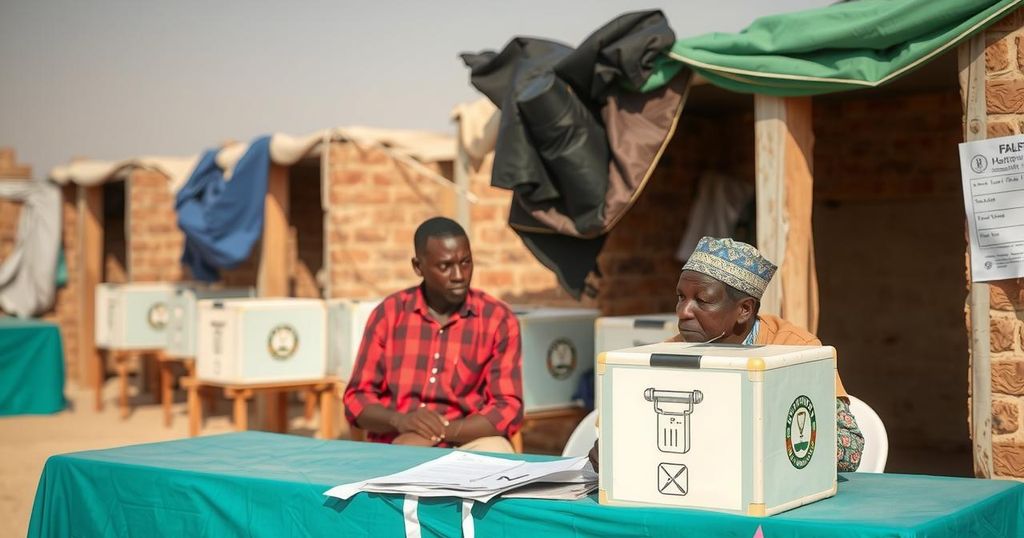Voting has begun in Chad, despite opposition calls for a boycott, reflecting widespread public apathy toward the electoral process. Most voting will take place on Sunday for various governmental positions, while early turnout from military and nomadic voters has been observed. Concerns persist regarding the legitimacy of the elections and the influence of the ruling party, as Chad faces ongoing insurgent threats and challenges in its transition to democracy.
Voting has commenced in Chad, amidst strong opposition calls for a boycott of the electoral process, which many perceive as a mere façade for perpetuating the ruling party’s dominance. This election, touted by President Mahamat Idriss Deby Itno as essential for democratic progress, has seen opposition parties urging citizens to abstain from voting. Early reports indicate that military personnel and nomadic groups cast their votes ahead of the general public.
Most voters will participate on Sunday to elect members for the national parliament, regional assemblies, and local councils, with polling hours from 6 am to 5 pm local time. Reports form the capital N’Djamena reveal a general sense of apathy among the populace, with citizens expressing skepticism regarding any significant changes post-election. Issues such as rising living costs and pervasive corruption are predominant in public discourse, overshadowing the electoral process.
Some opposition factions, including the Transformers party, have made fervent appeals for a boycott, branding the elections as illegitimate. By midday on Saturday, around 45 percent of armed forces and nomadic voters had participated in the polls, according to estimates by election officials. The voting process was described as proceeding smoothly by a senior election management official.
The backdrop of these elections includes ongoing security challenges, including insurgent threats from Boko Haram in the Lake Chad vicinity and recent tensions with France, Chad’s former colonial power. Although President Deby presents these elections as a critical transitional phase towards democracy following his ascension to power in 2021, analysts suggest the legitimacy of the electoral process is contested, citing concerns regarding the independence of the electoral management body. Previous elections, notably a disputed presidential vote that Deby won earlier this year, have only fueled these concerns.
Chad has been grappling with political unrest and security challenges that complicate its democratic transition. The country’s history of military rule, coupled with the legacy of former President Idriss Deby, has cultivated skepticism toward electoral processes, as opposition parties claim they are often manipulated to favor the ruling party. The ongoing insurgent threats from groups like Boko Haram and a recent military accord cancellation with France indicate the precarious nature of Chad’s stability. As the country aims for democratic reforms, these elections are significant yet highly scrutinized affairs.
In conclusion, the commencement of voting in Chad arrives amid significant opposition calls for a boycott, reflecting widespread public skepticism toward the electoral process. With President Deby framing the elections as pivotal for a democratic transition, serious concerns loom over the legitimacy and fairness of the elections, particularly given recent political history and ongoing security threats. The outcome may further define Chad’s political landscape and its pursuit of stability in the face of both internal and external challenges.
Original Source: www.aljazeera.com






